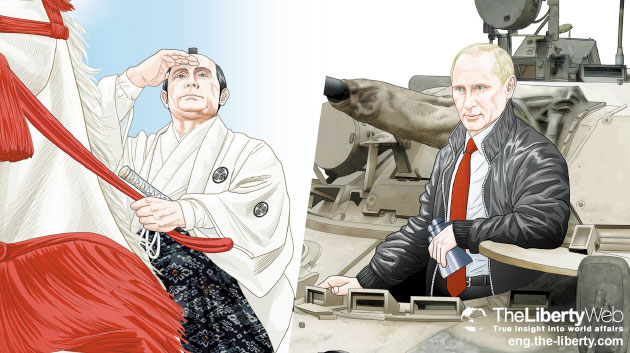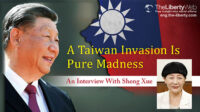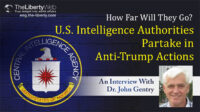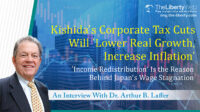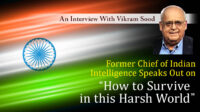“Past Life Stories” People Reincarnate
Putin's Past Life 2
Vladimir Putin
(b. 1952)
Born into a lower class family in Leningrad (now Saint Petersburg), he later joined the KGB. He became Acting President of Russia in 1999 and was elected President in 2000.
Yoshimune Tokugawa
Born as the fourth son of a feudal lord (a cadet branch) of the Tokugawa clan, he succeeded the lordship after the deaths of his father and 2 brothers. He restored the finances of his domain. Yoshimune, despite being third in line, was appointed to be the 8th shogun of the Tokugawa shogunate by the first wife of Ienobu, the 6th shogun. He restored the declining government finances and became one of the most celebrated rulers in Japanese history.
“It’s pretty much a draw”. These were the words Putin used to describe the Kuril Islands dispute when he was reelected in 2012. He was referring to his favorite Japanese martial art Judo, implying the need to look for a solution that both sides can accept. It was doubtless a conscious reversal of the previous Prime Minister Medvedev’s anti-Japanese campaign visit to the islands one year earlier.
If we had to choose one indisputable pro-Japan individual from out of the many heads of states, it would be Vladimir Putin, President of the Russian Federation.
A video clip of the Hiroshima A-bomb shown at the 2014 D-Day 70th Anniversary in Normandy drew applause from some of Europe’s many heads of state who attended: for them it was a symbol of victory. But the moment he saw the footage, Vladimir Putin straightened himself and made the sign of the cross. It was an expression of condolence for the greatest tragedy in human history.
His former colleagues from his time in the KGB comment on his manliness: “like a samurai”. So this article explores what sort of ‘samurai’ lies hidden in the depths of Putin’s soul.
Abarenbo Shogun Returns?
According to spiritual research by Happy Science, Putin was born in Japan in a past life as Yoshimune Tokugawa, the 8th Shogun of the Tokugawa shogunate. He inspired an iconic hero who appeared in a Japanese TV series “Abarenbo Shogun”. The story revolves around the shogun stopping various evils in the city of Edo disguised as a commoner. The strong and unreserved character became a huge hit. There is a story that the real Yoshimune was so strong that he was able to throw a professional sumo wrestler when they had a match.
Another anecdote describes him during his years as a feudal lord. When he was out hunting with his servants, a giant boar suddenly attacked him. Two rifle shots missed and his servants were in a panic, but he aimed and fired a last shot which hit the boar right between the eyes.
The legends continue into his time as a shogun. Whenever there was a fire in the castle city, he would put on firefighting attire and climb onto the castle roof to conduct the firemen. It would have been an unusual sight.
Putin has a deep connection with martial arts. He focused on judo when he was a delinquent, and it helped put his life back into shape. “Judo isn’t a sport; it’s a philosophy”, he says. “Every aspect of it has something you can learn from.” He is a true Judoist with professional connections.
Once during an inspection of the forests of the Russian Far East, a tiger escaped his chains. Much like Yoshimune and the boar, it was Putin himself who shot the tiger with a tranquilizer dart.
Like Yoshimune taking the leash and conducting the firemen, Putin himself once stepped in to stop the spread of a labor strike in 2009: he went to Pikalyovo in Leningrad Oblast during a financial crisis when the factories had to suspend operations and successfully negotiated with the businesses to reassume operations.
Putin and Yoshimune also have similar hobbies. There are photos of a topless Putin riding horses and hunting on a holiday, and Yoshimune known once to have spent his holiday hunting without clothes on.
Luck and Excellence in Being Promoted
These two people were able to grasp small opportunities to end up becoming state leaders.
Yoshimune was born into a cadet branch family of the Tokugawa clan, but he was disadvantaged by his mother’s low position as the youngest child. When he became the feudal lord, he rebuilt the finances and gained the reputation of ‘great ruler of Kishu domain’. The central government then realized that Yoshimune had the abilities they needed to help reverse their financial crisis.
Additionally, he had many subordinates who quickly relayed information, and were able to reach Edo castle to welcome the shogun before other notable people even arrived. This earned him the confidence of the shogun’s aides, and ended up propelling him to become the next shogun.
Similarly, Putin was born in 1952 into a rather poor family, but studied hard and trained in Judo to be accepted into the KGB. He worked in the office of the President from 1996, and became the Prime Minister in just 3 years. His hard and honest work earned him the confidence of President Yeltsin. He showed great aptitude as a leader in the Chechen Wars in place of an ailing Yeltsin, and won the position of his successor.
Rebuilds Nation Through Key Industries
Yoshimune is famous for instigating the Kyoho reforms (financial reforms that saved the shogunate from a financial crisis). When Yoshimune became the shogun, state finances were so bad they couldn’t even pay wages to the shogun’s retainers.
Yoshimune claimed, “be aware that unlike the shoguns before me, I will say and do things that have no precedents”. What became the foundation of the reform was information. He created a job specialized in receiving orders directly from the shogun, and placed a box in front of the supreme court so anyone could write complaints and appeals. This allowed the public voice to bypass high officials, and come directly into Yoshimune’s ears.
Yoshimune was given the epithet “rice shogun” because of the importance he placed on the rice key industry: he was always watching its price and helped develop new rice fields.
But it was leadership by series of trial-and-error. Price values of goods kept dropping, and rice collected as tax didn’t increase. Stuck in this situation, Yoshimune issued a currency made from half the amount of gold and silver as the previous currency to overcome the currency deficiency: this brought about a monetary easing effect. Goods, values and rice collected as tax increased. The government also profited from issuing the currency. As a result, financial conditions improved substantially.
Putin similarly rebuilt Russia after the dissolution of the USSR. After the dissolution, the state GDP was around half, but after Putin’s inauguration as Prime Minister in 1999, there was a growth in the GDP, and thereafter maintained an annual average 7% growth between the inception of his presidency in 2000 until 2008.
The main factor behind this is Russia’s key industry, oil. When Putin exiled the oil magnate Mikhail Khodorkovsky, and returned the oil resources to government control, oil prices that were US$30 per barrel in 2003 rose to over US$140 in July 2008. This breathed new life into the flaccid Russian economy.
“Russia’s large natural resources potential is conditioned by its specific place among industrialized countries.” Putin wrote in a thesis on the nationalization of natural resources back in the 90s. “Given its effective use, this resource potential will become one of the most important pro-conditions for Russia’s sustainable entry into the world economy.” (Mineral And Raw Materials Resources And The Development Strategy For The Russian Economy)
The nationalization of resources leading to a rise in value was no mere stroke of luck; it was a product of Putin’s keen eye for the future.
Stability Through Law Improvements and Power Centralization
Yoshimune and Putin’s achievements are also in similar areas.
Yoshimune was known for his passion for law reforms. He went to see the law court process inside Edo castle and made improvements in the penal code. His new judicial laws were compiled in a two-volume “book of rules for public officials”.
Putin may seem like a lawless dictator, but in truth his reshaping of the massive country is done all within the law, the knowledge of which stems from his time as a law student. Thanks to his legal reforms, the number of murders and murder attempt cases decreased from 33.6 thousand in 2001 to 15.6 thousand by 2010.
Both Yoshimune and Putin like to centralize government.
Yoshimune gave a bureaucratic position to the daimyos that owned territories all over the country to keep them under state obedience. Putin issued a prohibition of new large-scale companies from political intervention, legalized presidential power to dismiss regional government authorities, and dispatched people to keep watch over them. This placed all regional governments under the control of the central government.
Yoshimune and Putin are both examples of great leadership in reacting to crises.
Yoshimune had every region maintain a stock of rice for emergencies, which came in handy when the greatest famine of the age arrived 4 years later. Straight away Yoshimune dispatched authorities and government workers to assess the state of disaster and had each region accommodate its needs through the emergency stockpile. This significantly reduced the repercussions.
In 1999 when Putin was Prime Minister, amidst the Second Chechen War reaching its most severe, a series of terrorist attacks killed almost 300 civilians. Putin demanded the president of Chechnya hand over the terrorists , but receiving no response, embarked on a large-scale attack.
“If we don’t stop the terrorists, the entire Russian Federation will become another Yugoslavia”, Putin said. Yugoslavia was a country that met a tragic end in 1992 when an ethnic conflict gradually grew and resulted in dissolution. Putin wanted to prevent this from happening to Russia at all costs. As a result of his decision to strike Chechnya, he gained emphatic support from the people, which led to his being elected president.
Putin Holds the Key to World Peace
Currently, Russia has become isolated by the economic sanctions imposed by Europe and the U.S. Their position now gives them no choice but to approach China. If in this opportunity, the Russia-Japan relationship were to improve, it would be a phenomenal push towards protecting Asia from China’s ambitions.
Russia also holds influence in the Middle East: they are the country that is closest to Syria (now haunted by the ISIS problem) and with Iran (such as borrowing military facilities to bomb Syria).
Putin is moving towards peace in the Middle East. He suggested mediating peace talks in Moscow between Israel and Palestine.
Trump and Putin’s relationship will become the key to world peace.
Much is to be expected of the once Japanese shogun, current Russian President Putin, in the year 2017.

